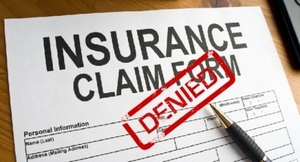 You come home one day from your 14 day vacation in Europe only to discover that your septic tank ruptured. The mess is everywhere, and that rare China your Grandmother gave you on your wedding is smashed as a result of your frustration.
You come home one day from your 14 day vacation in Europe only to discover that your septic tank ruptured. The mess is everywhere, and that rare China your Grandmother gave you on your wedding is smashed as a result of your frustration.
You immediately get on the phone with your insurance agent and your insurance company. But yet they inexplicably deny your claim.
You want to sue the insurance company, and you want justice.
But before you commit to taking your case to court, make sure this is a battle for which you’re truly prepared.
Lawsuits can be very costly in terms of time and energy, and they will also take an emotional toll too. So don’t enter into litigation lightly. If there is a chance of resolving the dispute amicably, consider that option.
You may never have gone to court before, but insurance companies do it all the time. Their lawyers know the ins and outs of the legal system. So it is important that you do wish to file suit, that you hire an attorney that is familiar with the courthouse and with battling insurance companies on a daily basis.
Here are steps you can take before resting your fate on the scales of justice.
1. Understand your duties and obligations as set forth in your insurance policy.
How do you do that exactly? Well, it may sound so obvious, but the first thing you need to do is to read and completely understand your insurance policy.
Often times insurance companies aggressively defend lawsuits not on the actual merits of the loss, but rather on conditions and obligations that the insured failed to do. It would be very unfortunate to be in such a situation. Especially when you consider that an insurance policy is a contractual relationship that binds both parties to certain obligations.
It is therefore critical that you, the insured, understand each and every one of those conditions. It doesn’t matter what your agent told you or what you heard on TV; the rules that must be followed are contained and found within the document you signed and in the insurance policy. And if you failed to follow those rules, and conditions, your lawsuit will likely fail.
If you don’t have a copy of your insurance policy, contact your agent. If you don’t understand your insurance policy, contact your agent or an attorney to help explain it to you.
2. What are the Odds that you Can Actually Beat the Insurance Company in Court?
Like with every important decision you ever make, you need to balance the pros and cons and perform a cost benefit analysis.
Never go to court unless you believe you have a very good chance of winning. The legal process is too costly to use merely to prove a point or assert your rights. If you file a suit to punish your insurer for things that went wrong during the claims process, you may end up being the one who is punished by wasting time and money.
3. Work with, not against, your insurance company during the claims process.
If your insurance company calls you, call them back. If your insurance company wants to inspect the property, let them do so. If your insurance company wants you to give a sworn statement, hire a lawyer and then make sure to appear for the sworn statement.
And even if you do everything the insurance company asks of you, it is possible that the insurance company will still deny your claim. But if they do, try to resolve the claim one more time before filing suit.
Litigation should be a tool of last resort, not first. Explore all potential settlement options prior to filing suit.
4. Find a lawyer that has experience fighting the insurance companies.
If you decide to go forward with your lawsuit, you may need to find an attorney who will work on a contingency basis, taking his or her pay out of any settlement you win. If you agree to pay your lawyer this way, the fee will be a percentage of whatever is awarded. In highly adversarial insurance disputes, lawsuits can drag on for years, however.
Find an advocate who isn’t afraid to go up against the big guys. You need someone who has a track record fighting and winning against the insurance companies.
5. Be patient, lawsuits take time.
Lawsuits often become waiting games. It easily can take a year or more to resolve a case. Attorneys representing insurance companies sometimes use delaying tactics to throw their opponents off their game or build up their own hourly fees. Expect these kinds of legal maneuvers and don’t let them shake you.
—–
EXTENDED BODY:
Our Miami insurance dispute lawyers handle insurance claims for homeowners. Our attorneys represented insurance companies before 2006, when we opened a firm dedicated to fighting for the rights of consumers. We understand how insurance companies work. And we have the knowledge and experience necessary to represent homeowners in disputes over an insurance claim.